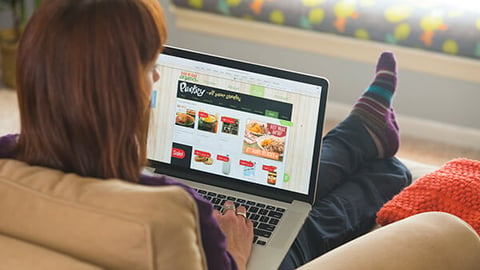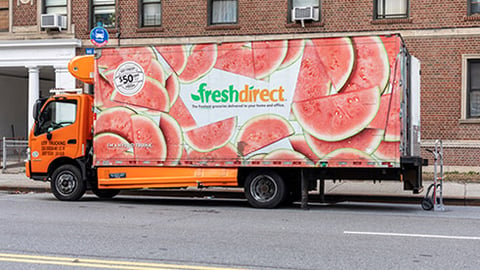Food Retailers Face New Pandemic Problems
Just as many retailers are trying to regain their footing amid tentative re-openings, a new worry has appeared during this particular phase of the COVID-19 outbreak: Some consumers apparently are getting a fresh bout of cold feet when it comes to venturing out into the wider world of commerce, according to a new report.
Food retailers have stayed open and done brisk business during the pandemic. Even so, these emerging attitudes among consumers could have an impact grocery stores and supermarkets — leading to new challenges but also fresh opportunities for the second half of 2020 and into 2021.
A new survey report from Acosta finds that 50% of millennials are “more concerned now than they were at the start of the pandemic.” That rate of renewed concern about health risks and other issues has grown more than was the case for other generations, according to the report. The findings stem from online surveys conducted between May 29 and June 3.
Health and Money Worries
More broadly, concerns about the pandemic remain pretty high, the report found, “with 35% of shoppers more concerned than they were at the start of the pandemic.” These findings arrive as public health officials worry about increasing COVID-19 cases in some areas, and as local and state politicians consider whether new lockdowns or other remedies are needed to keep the spread of the virus under better control.
As far as consumers go, the Acosta report found that shoppers’ biggest concerns include catching the virus (cited by 72% of survey respondents); a second wave of the pandemic and further shutdowns (65%); the pandemic’s impact on the economy (56%); and the state of their household finances (48%).
"Even as states reopen, most shoppers remain concerned about COVID-19. Half of Millennials surveyed, in fact, are more concerned now than they were at the start of the pandemic," said Darian Pickett, CEO of Acosta. "Many consumers are particularly hesitant to eat out because they are concerned about social distancing and are preparing more meals at home. Retailers should be prepared to continue meeting dining needs by providing creative meal solutions, like collaborating with local restaurants to supply and sell prepackaged meals."
Grocery Trends
For the food retail sector, consumer caution could have consequences for certain offerings set up inside stores.
That’s because the Acosta report found that up to 50% of grocery shoppers who previously had little problem buying food from self-serve and counter areas are now making fewer of those purchases thanks to the virus. Many of those areas inside stores were, of course, shut down during the pandemic. Even so, 43% “of shoppers said they will not or may not go back to the self-serve food bar after the pandemic (and) 31% will not or may not go back to self-serve bulk,” the report found. “An additional 31% will not or may not go back to the store-made to-go area.”
Those concerns, however, could lead to more opportunity for food retailers, Acosta said.
That could come from offering more prepackaged meals designed to be consumed at home, for example. Better digital technology also could come into play. As Acosta put it, “revamp the prepared food area with less self-serve intervention to win back shoppers. For example, create an online ‘build-a-meal’ option that allows customers to select from a virtual salad bar or taco bar to then pick up from the store.’
As well, retailers could “initiate foodservice partnerships with local restaurants to offer restaurant-quality meals to those who are not ready to eat out.” It’s going to be a long road to whatever the new food retail and commerce normal will be, but taking smart steps now can help make that work seem easier over time.





